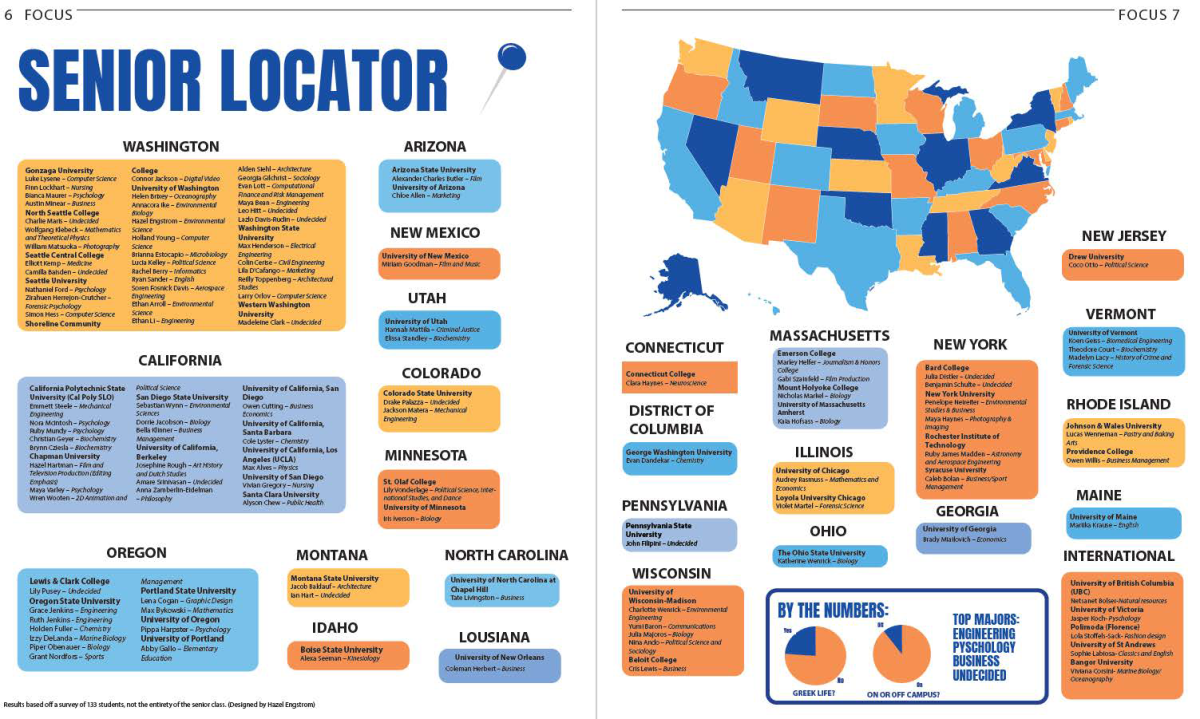World’s biggest climate conference flops for the 27th year in a row
Global leaders fail to provide real answers to climate change as impacts of climate disasters worsen rapidly
December 16, 2022

This past summer was a dreadful series of climate disasters. In Pakistan, a multi-week heat wave causing temperatures above 120 degrees Fahrenheit preluded floods that submerged over a third of the country, killing 1,300 people. Heat waves and droughts in China and India dried up rivers, killing food crops, disabling hydroelectric dams and cutting off ships carrying supplies. Wildfires in Europe burned three times larger than is precedent. South African heavy rainfall caused mudslides and floods that killed 45 people.
Closer to home, in the U.S., 2022 has hosted 15 climate disasters that have cost over $1 billion. News reports on Hurricane Ian and Hurricane Fiona traded time on the television screens, radio reports and newspaper subscriptions of millions. In our own backyard, the newly-less-evergreen PNW, wildfires tore through thousands of acres of forest, leaving destroyed homes, devastated communities and lost economic security.
These are just the obvious disasters. Climate change has displaced thousands, rendering them “climate refugees.” This is a humanitarian crisis.
The world’s biggest climate conference occurred this November in Sharm El-Sheikh, Egypt. COP27, significant of the 27th Conference of the Parties, is a global United Nations meeting held from Nov. 6 to Nov. 18. 35,000 delegates attended, including Biden and 100 plus heads of state. With all these important people in one room, you’d think something would get done; alas, this year’s climate conference was comparably successful to a large group of chickens fighting for the greater good.
The location of the conference alone was controversial. Egypt has been suffering a humanitarian crisis for years, imprisoning social media activists who dissent the government. As of now, an estimated 60,000 political prisoners are held by the government, and climate activists have been consistently silenced and threatened.
The carbon footprint of the facility used and the amount of money put into the conference itself was horrific. The Egyptian resort town, Sharm el-Sheikh, was intensely greenwashed, and many suspect the conference was Egypt’s way out of addressing concerns about their political practices.
There were three main battles fought for by developing countries: climate finance, global decarbonisation and recognition of the responsibility of developed countries to pay for loss and damage.
“Loss and damage” is the term used to reference monetary reparations given from developed countries to undeveloped countries that have suffered the brunt of climate change, such as Pakistan or India. The idea is that industrialized and developed countries, like the U.S. or Britain, have put out the outstanding majority of carbon emissions since the industrial revolution.
Many first world countries, the U.S. included, have loosely promised to pay these reparations and simply not followed through. The great fear is that paying up for years of conscious (yet obviously apathetic) environmental destruction will label them liable for climate change. News flash, they are.
What we’ve gotten instead is a vague agreement to meet in 2023 and revisit the idea of loss and damage. I won’t be any more shocked then as I am now when absolutely nothing happens.
COP27 is only the most recent of a multi-decade streak of UN climate inefficiency. COP-26, for an example, simply agreed that the nations involved should adhere to the 1.5 degree Celsius rule of the Paris Agreement; Global temperatures cannot rise above 1.5 degrees celsius from the temperature they were pre-industrialization, or the climate effects will be irreparable. Since that time, only 1/50th of the work needed to achieve that goal has been accomplished.
Excuses for the halting nature of COP27 circle around the war on Ukraine. As the world falls further towards recession, most countries are scrambling to find new sources of oil and gas to replace Russia’s, redoubling efforts to procure fossil fuels. Few have thought of the opportunity this shortage presents – renewable energy could be the new norm.
Every country, no matter how wealthy, believes themselves to be in a poor enough financial state to evade putting money towards a slow moving crisis. No world leader seems to realize that a short term economic crash holds no weight against climate change slowly killing people.
What’s more, the biggest companies that are some of the largest abusers of environmental resources could be the only hope. Companies like Coca-Cola, Microsoft and Google that host the top 1% possess the wealth to fix this issue, but they often are simultaneously the biggest perpetrators of carbon use, placing their monetary agenda above sustainable business practices.
In the meantime, people will continue to lose their homes to wildfires, their families to floods and their livelihoods to hurricanes. Poor people globally will continue to suffer disproportionately while our world’s leaders will say they’re just working on our economic crisis. At least the upper middle class will continue to afford gas and the United States can’t be sued for remaining the world’s best producer of fossil fuels.
When will it be enough? When will politicians get up and decide that vacuous statements about the big ol’ problem that is climate change are not actually exchangeable for real change? What will happen to the citizens of our big, beautiful, dying earth?
For now, we will just sit and wait for our favorite leaders to dig us further down the hole of climate change.

























